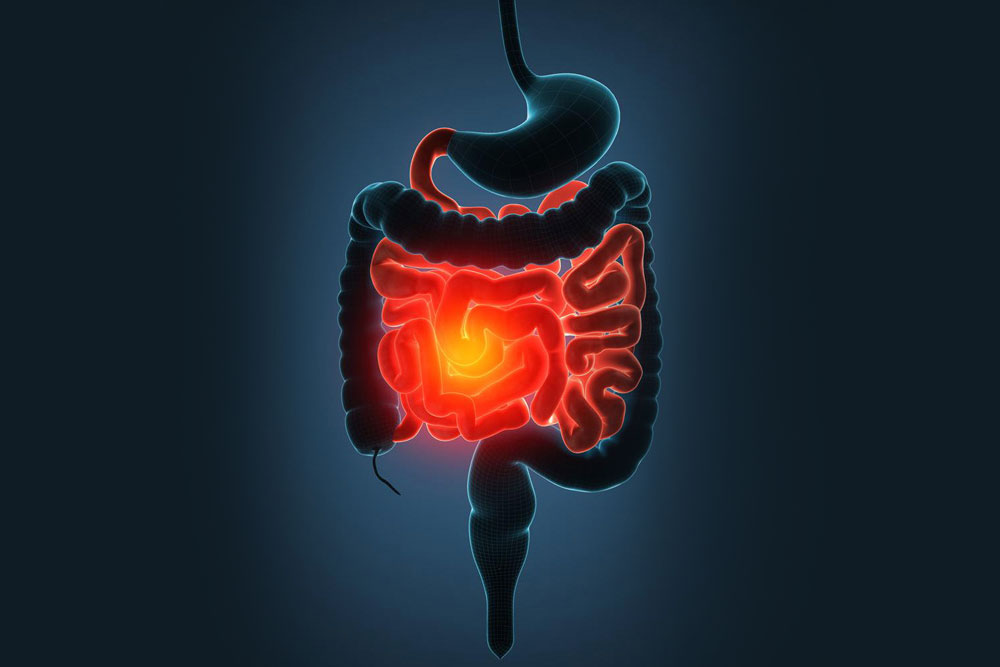Comprehensive Guide to Managing Ulcerative Colitis: Symptoms, Causes, and Advanced Treatment Options
Ulcerative colitis is a chronic inflammatory disease affecting the large intestine, causing symptoms like abdominal pain, diarrhea, and fatigue. Comprehensive management includes medications, lifestyle changes, and, in some cases, surgery. Early diagnosis and personalized treatment are crucial for improved quality of life, with ongoing advancements helping patients better control their condition and prevent complications.

Understanding Ulcerative Colitis: Symptoms, Causes, and Effective Treatment Strategies
Ulcerative colitis is a chronic inflammatory condition that primarily affects the large intestine, specifically targeting the rectum and expanding through parts of the colon. This serious digestive disorder can significantly impair quality of life due to its persistent symptoms and the unpredictable nature of flare-ups. In this comprehensive guide, we will explore the symptoms associated with ulcerative colitis, delve into the underlying causes and risk factors, and review current treatment options ranging from lifestyle modifications to advanced medical interventions.
What is Ulcerative Colitis?
Ulcerative colitis is classified as an inflammatory bowel disease (IBD). Unlike irritable bowel syndrome, which affects bowel function without causing inflammation, ulcerative colitis involves an immune response that leads to inflammation and ulcerations within the mucosal lining of the large intestine. This inflammation results in symptoms that can severely disrupt daily routines.
Key Symptoms of Ulcerative Colitis
The symptoms of ulcerative colitis vary depending on the severity and extent of inflammation but generally include:
Painful and urgent bowel movements
Diarrhea, often with blood or pus
Abdominal cramping and discomfort
Unintended weight loss and fatigue
Fever during severe flare-ups
Rectal urgency and sensation of incomplete evacuation
Many patients experience periods of remission where symptoms diminish or disappear entirely, only to experience flare-ups later. These fluctuations make managing the disease challenging but feasible with proper medical guidance.
Understanding the Causes and Risk Factors
The precise cause of ulcerative colitis remains elusive, but it is believed to involve a combination of genetic, environmental, and immune system factors. It is thought that an abnormal immune response causes the body's immune system to mistakenly attack the lining of the colon, leading to inflammation. Genetic predisposition plays a role, as individuals with a family history of IBD are at higher risk.
Environmental factors such as diet, stress levels, smoking habits, and exposure to certain pathogens may trigger or exacerbate the disease. Researchers also suspect that microbiome imbalances—alterations in the gut bacteria—may contribute to disease development.
Diagnosis of Ulcerative Colitis
Diagnosing ulcerative colitis involves a combination of medical history assessment, physical examinations, and diagnostic tests. The primary diagnostic procedures include:
Endoscopy: A colonoscopy allows direct visualization of the colon’s mucosal lining and the collection of tissue biopsies for histological examination.
Stool Tests: To rule out infections and identify markers of inflammation.
Imaging Scans: Such as barium enemas or CT scans to assess the extent of damage and inflammation.
Early and accurate diagnosis is critical for effective management and to prevent complications such as severe bleeding or colon perforation.
Treatment and Management Strategies
Managing ulcerative colitis involves a multifaceted approach tailored to the severity of the disease, extent of inflammation, and patient-specific considerations. The ultimate goal is to reduce inflammation, achieve remission, and improve quality of life.
Lifestyle Modifications
Alongside medication, certain lifestyle adjustments can significantly impact disease control:
Staying well-hydrated to prevent dehydration caused by diarrhea
Maintaining a balanced diet low in processed foods, fatty acids, and irritants
Managing stress through mindfulness, meditation, or gentle exercise
Incorporating probiotics to support healthy gut bacteria
Avoiding smoking and alcohol consumption, as they can worsen symptoms
Medications for Ulcerative Colitis
Several classes of medications are commonly prescribed to control inflammation and suppress the immune response:
Aminosalicylates: Such as mesalazine and sulfasalazine, which help reduce inflammation in the colon.
Corticosteroids: Used for short-term flare-up management but not suitable for long-term use due to side effects.
Immunomodulators: Agents like azathioprine and mercaptopurine that suppress immune activity to maintain remission.
Biologic Therapies: Including infliximab and adalimumab, targeted treatments for moderate to severe cases resistant to traditional medications.
Antidiarrheal and Pain Medication: For symptomatic relief.
Surgical Options
In cases where medication fails or complications arise, surgery becomes necessary. Common procedures include:
Proctocolectomy: Removal of the entire colon and rectum, with canning of the ileum to create a pouch for waste storage.
Ileal Pouch-Anal Anastomosis (IPAA): Also known as J-pouch surgery, it offers a possibility of continent stool management.
Total Colectomy: Complete removal of colon, often followed by ileostomy in severe cases.
Surgical intervention offers a chance for remission and symptom relief, especially in severe or refractory cases, but carries risks and requires comprehensive post-operative care.
Living with Ulcerative Colitis
Beyond medical treatments, patients can adopt various strategies to manage life with ulcerative colitis effectively:
Regular monitoring by healthcare providers to track disease activity
Adhering to prescribed treatments and attending follow-up appointments
Maintaining a food diary to identify and avoid personal trigger foods
Engaging in gentle physical activity to boost overall health
Seeking psychological support if experiencing anxiety or depression due to chronic illness
While ulcerative colitis can pose significant challenges, advances in medical science and a proactive approach to management can greatly improve prognosis and daily life. Patients are encouraged to stay informed and communicate openly with their healthcare team for personalized care plans.





